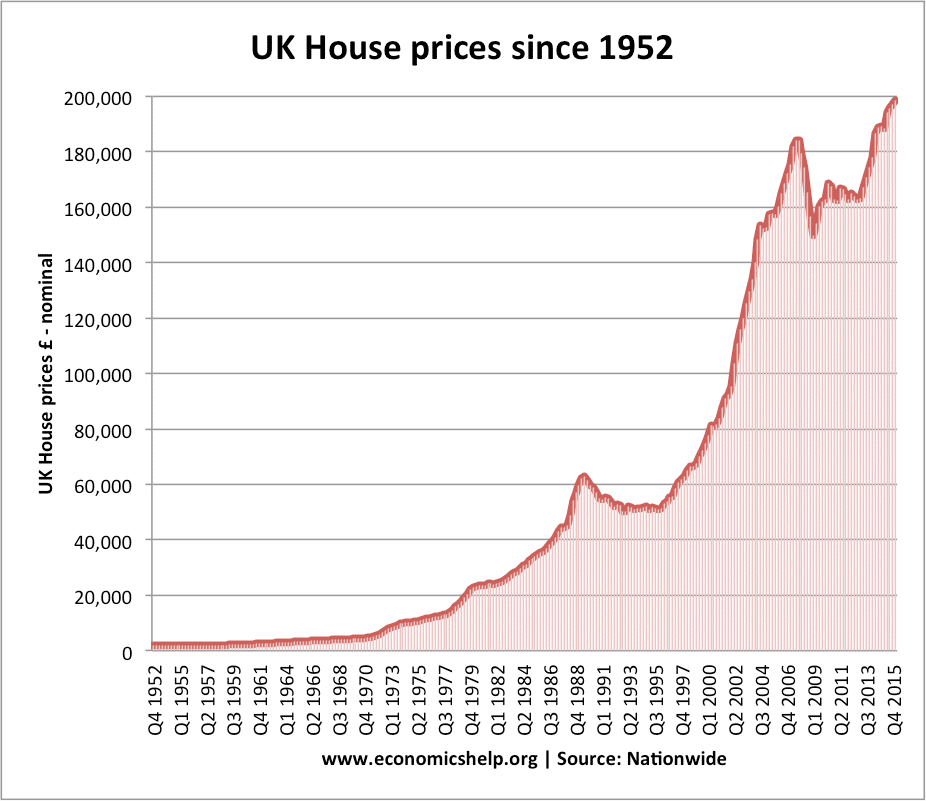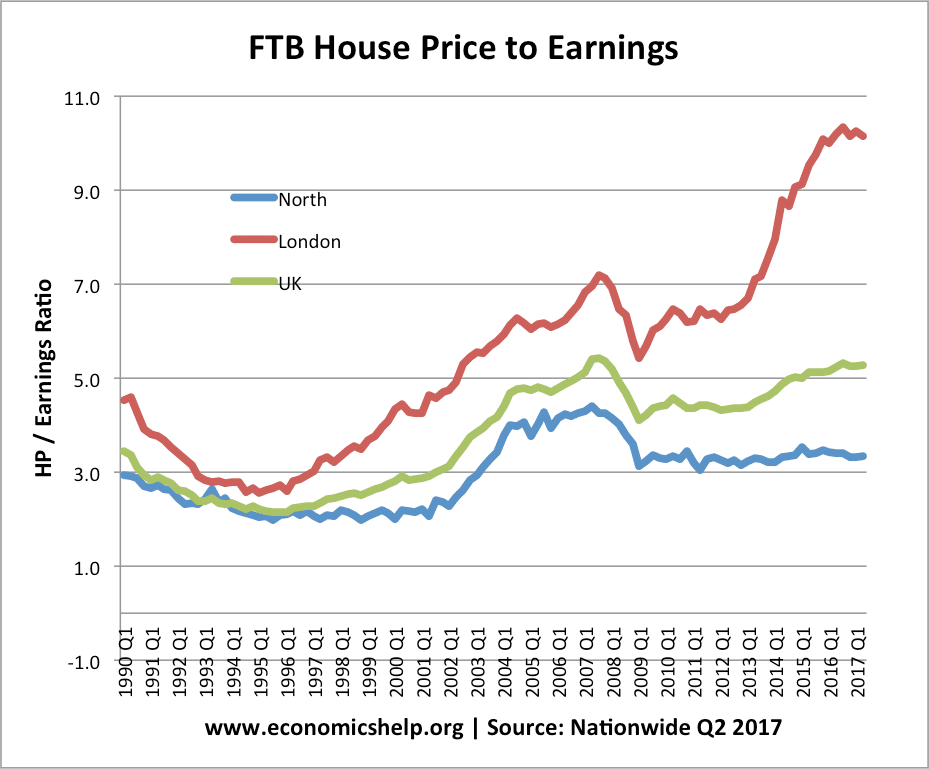Interesting article here about the UK economy of the 1930s escaping from the Liquidity trap and Great Depression of the 1930s. This involved:
- Higher inflation target
- Low-interest rates and negative real interest rates.
- Devaluation (UK left Gold Standard in 1931)
The article is also interesting for another reason, a short insight into the housing market of the 1930s. Like many people in Oxford, I live in a 1930s semi-detached house. It was a golden era of home building. Supply was elastic, few planning regulations, people were not worried about congestion and overcrowding. The mini private sector housing boom was a factor in helping the UK economy recover.
“85% of new houses sold for less than £750 (£45,000 in today’s money). Terraced houses in the London area could be bought for £395 in the mid-1930s when average earnings were about £165 per year. Houses were cheap because the supply of land for housing was very elastic which in turn meant that there was no incentive for developers to sit on large land banks. Underpinning the availability of land for house-building was an almost complete absence of land-use planning restrictions which applied to only about 75,000 acres in 1932 – the draconian provisions of the 1947 Town and Country Planning Act were still to come.”
Monetary also played an important role, low real interest rates encouraged a rapid growth in mortgages, enabling more people to buy.
One thing is for sure, buying a terraced house in London for £395 in the mid-1930s was a very good investment!
The economy of the 1930s was not all about the great depression. The UK was hit relatively lightly compared to US and Europe. In the second half of the 1930s, there was an economic recovery – especially in the south and the new ‘commuter belt around London and the Midlands.
Post-war UK house prices

London house price to earnings ratio
How London house prices have risen faster than earnings in past couple of decades.
Related

